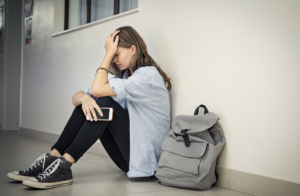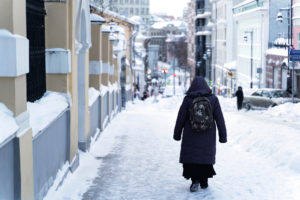What Do We Really Think of Later School Start Times?
- 38.2% of surveyed U.S. adults believe school start times in their area should be later, compared to 36.6% wanting earlier starts and 25.2% wanting no change.
- California has mandated an 8:30 a.m. or later start time for its high schools as of July 1, 2022.
- Florida approved the same mandate for 8:30 or later start times for high school students in 2023, and this is set to take effect in 2026.
- 83% of U.S. public high schools started before 8:30 a.m. in 2020.
- 44.2% of surveyed parents say they like school start times the way they are, with 34.8% wanting later starts and 21% seeking earlier ones.
- 69.2% of parents and guardians say their school-age children were getting sufficient sleep this past school year.
In 2022, California became the first in the nation to mandate a school start time of no earlier than 8:30 a.m. for high schools, no earlier than 8 a.m. for middle schools. The mandate, which was approved in 2019, took effect at the beginning of the 2022-23 school year. Florida became the second state to pass such a law in 2023, mirroring California’s mandated start times for middle and high school students. Florida’s mandate takes effect in 2026.
There’s science behind it. Teens need at least eight to 10 hours of sleep, according to leading sleep researchers. Numerous surveys in the past decade show that as much as 69% of them aren’t even getting seven hours.
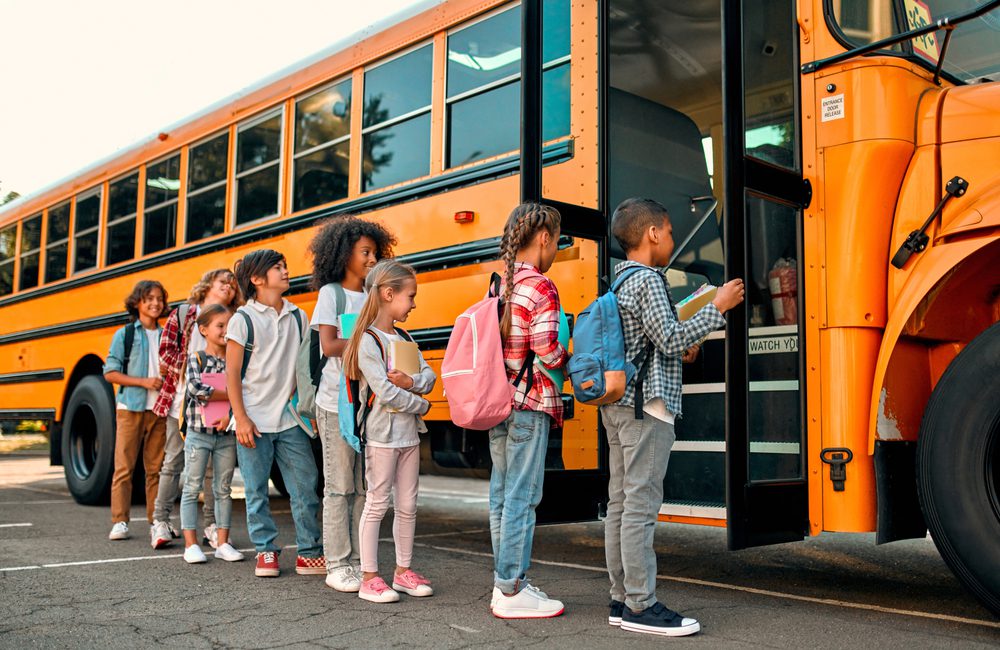
“I would love to see districts really put the public health and learning needs of all children at the forefront because teenagers who aren’t getting the sleep they need cannot learn how they are supposed to in school,” says Wendy M. Troxel, Ph.D., a senior behavioral scientist at RAND Corp. and a SleepFoundation.org medical advisory board member.
While California and Florida are the first to pass statewide laws on the subject, several other states have proposed similar mandates, and cities and school districts nationwide have implemented later start times.
But what do parents, teachers, and other school personnel think about school start times?
SleepFoundation.org polled 1,250 of them in July 2022 and found mixed sentiment. The largest batch of respondents, 38.2%, believed school start times in their area should be later. The rest are satisfied with times as they are now (36.6%) or would like them earlier (25.2%).
Diving deeper into what people think, a clearer picture may emerge about when and where we might see school start-time changes throughout the country.
Why Does School Start So Early?
Before the pandemic, more than 80% of high schools started their school days before 8:30 a.m., with the average public school beginning at 8 a.m. and 10% ringing the first bell of the day before 7:30 a.m.
That wasn’t always the case. Until a few decades ago, high school teens started their school days as late as 9 a.m. What changed? Districts began to stagger busing schedules as a cost-saving measure. Older children saw their school start times move up, with many having to wake before sunrise to get to sports practices and even classes.
For parents and educators, those early start times also became a habit. It could explain why 44.2% of parents and caregivers in SleepFoundation.org’s poll say they prefer start times to stay the same, compared to 34.7% wanting them pushed back and 21% wanting them even earlier.
Among Census regions, 42.1% adults in the Northeast preferred later starts, followed by 39% in the Midwest, 38.1% in the South, and 35.3% in the West. So maybe that habit is itching to be broken.
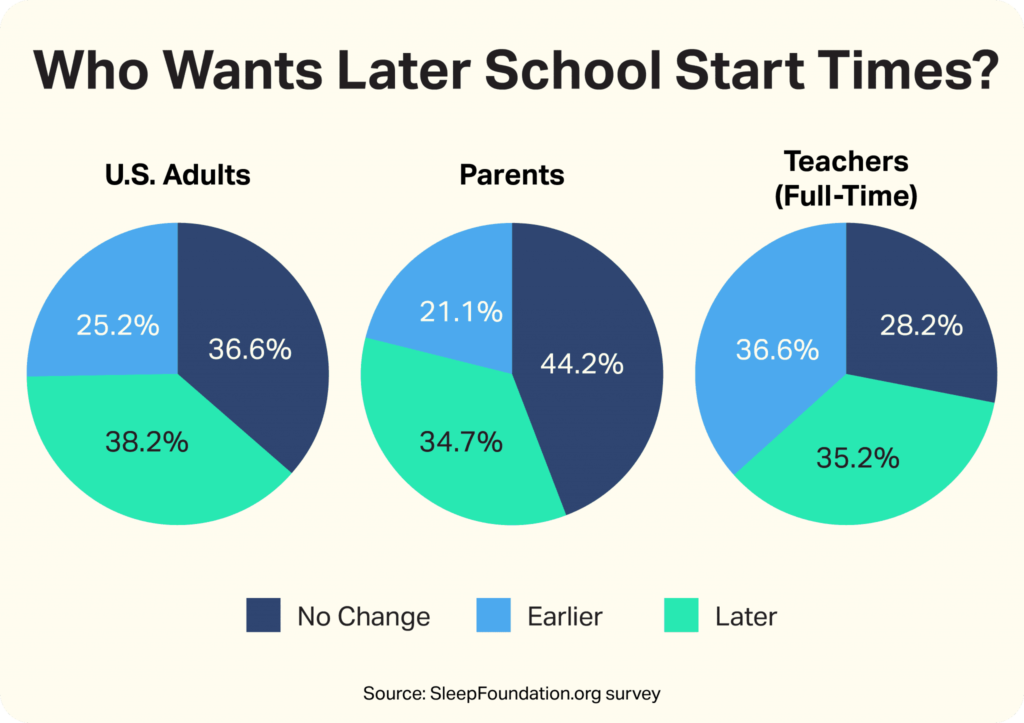
How Much Do Start Times Really Affect Teens’ Sleep?
Kids need more sleep than adults. Recommendations typically say that children ages 14 to 17 should be sleeping eight to 10 hours a night, with children ages 6 to 13 needing nine to 11 hours.
This is because our bodies, especially our brains, are developing when we go through childhood, with sleep playing a major role.
Puberty in particular shifts the internal biological clock of adolescents back two hours, Troxel says. But getting up early for school, taking on after-school activities, and finishing homework work against the change.
“Your biology wants you to stay up later and sleep in later,” Troxel says, “so teenagers are chronically sleep-deprived.”
Studies show that 31.2% of children ages 13 to 17 aren’t getting enough sleep. That increases to 37.4% of kids ages 6 to 12.
Parents say nearly the same thing, according to the SleepFoundation.org survey. Ninth- to 12-graders average 7.7 hours of sleep, their parents say, below the recommended eight hours. Some 59.5% of parents or guardians say they agreed with the statement that their kids got sufficient sleep on weeknights.
Parents of sixth- to eighth-graders say their children get 7.7 hours of sleep each school night, as well, with 63.8% considering that sufficient. Among first- to fifth-graders, that increases to an even eight hours, with 78.6% of respondents calling that sufficient.
In all, 69.2% of parents and guardians say their school-age children were getting sufficient sleep this past school year. But what about the rest?

What Would We Gain From Later Start Times?
When Andi Mannes’ 15-year-old son, Andrew, had a late start time of 8:55 a.m. on Tuesdays at Torrance High School in Torrance, California, the extra hour of sleep came in handy.
“Those mornings, [Andrew] would wake up and be just this pleasant, wonderful kid, and so excited and getting everything done with plenty of time,” Mannes says of her son, who enters his junior year in fall 2022. But: “If we have to drop him off at 7:40 [a.m.], he gets up at the very last second. He’s rushing, he’s yelling, he can’t find his shoes. It’s far more chaotic.”
It’s part of the reason behind the California and Florida laws, and others like them. Studies show that teens in schools with later start times get better sleep .
“This is a public health issue,” says journalist Lisa L. Lewis, who campaigned for the California change and detailed her research in her book “The Sleep-Deprived Teen.”
Based on responses from surveyed parents or caregivers who prefer later start times, the majority (81.4%) thought later starts would lead to more sleep for students, and 72.4% agreed that they’d also get more sleep themselves.
But sleep isn’t the only factor. Adjusting schedules, fitting in after-school activities, and shifting transportation needs also enter the start-time conversation. Among survey respondents who felt start times should stay the same, 53.8% felt a change would reduce after-school activities for students. The top reason for respondents who favored earlier start times was schedule fit (68.9%).
Skeptics of later school-start times exist. More male respondents to the SleepFoundation.org survey preferred earlier start times (33.6%) to later (32.5%), for example, while 43.3% of females preferred later times.
And then there are teachers. Only 35.2% of surveyed teachers favored later start times, with 36.6% choosing earlier starts.
Administrators in California were particularly vocal when the law passed there in October 2019. That’s when Orange County superintendent Al Mijares argued in CalMatters that starting the school day later is a luxury many working-class parents can’t afford: “The indisputable reality in many of our communities is that students have to begin their day at the same time as their parents.” Another California teacher called the law “a case study in ‘unintended consequences.’”
California did give schools the option of creating a “zero period” earlier in the morning to accommodate early arrivers.
Where Does America Stand?
Although California and Florida were the first states to approve a late-start law, these are not the first municipalities to consider it. When Seattle high schools switched to an 8:45 a.m. start time in 2016, one study found that students got about 34 more minutes of sleep a night. During the 2022-23 school year, Seattle high schools started at 8:50 a.m. to accommodate buses.
A decline in bus service also drove public schools in Denver to move to 8:20 a.m. start times in 2023. There appears to be a growing push for later start times in other communities. Start School Later, an organization dedicated to mandating later start times across the country, claims more than 150 volunteer-led chapters in 33 states and the District of Columbia.
Meanwhile, late-start bills are moving through other states. Representatives in Connecticut , New Jersey , New York , and the U.S. Virgin Islands have proposed mandates for later start times at public schools. Massachusetts and New Mexico have also proposed bills authorizing studies regarding school start times, and Oregon has proposed a similar measure to create a start time “task force.”
Some districts have gone the opposite direction. Kentucky’s Jefferson County Public Schools proposed testing a 9:55 a.m. start time, then scrapped the plan in 2022 after teacher and parent outcries. And Philadelphia rejected 9 a.m. starts for high schools for the coming school year because of a shortage of bus drivers, among other reasons.
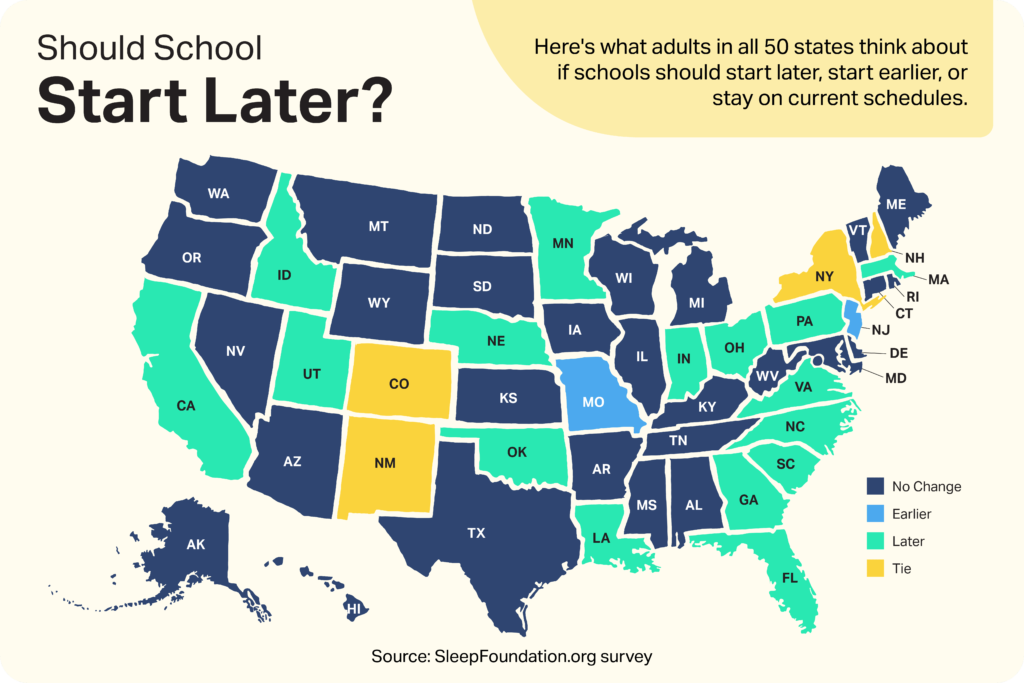
Start-time preference varies by state, according to the SleepFoundation.org survey. Twenty states came out in favor (or via a tie) of later school start times, according to their residents. These include South Carolina, whose 8:34 a.m. start time was the latest in 2020, according to the National Center for Education Statistics. Missouri and New Jersey residents preferred earlier start times. All other states had a majority leaning toward no change.
As for California: 35.6% of residents who responded to SleepFoundation.org’s survey favored later start times, compared to 32.6% wanting earlier start times and 31.9% wanting them to stay where they are.
Delaney Davis, 18, a recent graduate of Hamilton High School in Los Angeles, got a head start. Her school switched to 8:30 a.m. starts a year before the law took effect.
“It felt more productive to have that extra sleep time,” she says. “I was definitely more awake.”
Methodology
The survey commissioned by SleepFoundation.org was conducted on the online survey platform Pollfish between July 20 and 21, 2022. Results are from 1,250 survey participants who were ages 18 and older; lived in the United States; and were a parent, guardian, educator, or professional/volunteer who worked with K-12 students at the time of the survey. All attested to answering the survey questions truthfully and accurately.
References
18 Sources
-
SB-328, Chapter 868. 2019, October 14, (California 2019)., Retrieved July 23, 2023 from
https://leginfo.legislature.ca.gov/faces/billTextClient.xhtml?bill_id=201920200SB328 -
Sawyer, H., Taie, S., & Westat. (2020, February). Start Time for U.S. Public High Schools. The Institute of Education Sciences.
https://nces.ed.gov/pubs2020/2020006/index.asp -
Bertsimas, D., Delarue, A., & Martin, S. (2019, March 26). Optimizing schools' start time and bus routes. Https://Doi.Org/10.1073/Pnas.181146211., Retrieved July 25, 2023, from
https://www.pnas.org/doi/10.1073/pnas.1811462116 -
Hirshkowitz, M., Whiton, K., Albert, S. M., Alessi, C., Bruni, O., DonCarlos, L., Hazen, N., Herman, J., Katz, E. S., Kheirandish-Gozal, L., Neubauer, D. N., O’Donnell, A. E., Ohayon, M., Peever, J., Rawding, R., Sachdeva, R. C., Setters, B., Vitiello, M. V., Ware, J. C., & Adams Hillard, P. J. (2015). National Sleep Foundation’s sleep time duration recommendations: methodology and results summary. Sleep Health, 1(1), 40–43.
https://pubmed.ncbi.nlm.nih.gov/29073412/ -
Wheaton, A. G., & Claussen, A. H. (2021). Short sleep duration among infants, children, and adolescents aged 4 months–17 years — United States, 2016–2018. Morbidity and Mortality Weekly Report (MMWR), 70(38), 1315–1321.
https://www.cdc.gov/mmwr/volumes/70/wr/mm7038a1.htm -
Alfonsi, V., Palmizio, R., Rubino, A., Scarpelli, S., Gorgoni, M., D’Atri, A., Pazzaglia, M., Ferrara, M., Giuliano, S., & De Gennaro, L. (2020). The Association Between School Start Time and Sleep Duration, Sustained Attention, and Academic Performance. Nature and science of sleep, 12, 1161–1172., Retrieved July 25, 2023, from
https://pubmed.ncbi.nlm.nih.gov/33328774/ -
Dunster, G. P., de la Iglesia, L., Ben-Hamo, M., Nave, C., Fleischer, J. G., Panda, S., & de la Iglesia, H. O. (2018). Sleepmore in Seattle: Later school start times are associated with more sleep and better performance in high school students. Science advances, 4(12), eaau6200., Retrieved July 25, 2023, from
https://www.ncbi.nlm.nih.gov/pmc/articles/PMC6291308/ -
Denver Public Schools. (2023). Healthy Start Times., Retrieved July 25, 2023, from
https://www.dpsk12.org/healthy-start-times/ -
Start School Later. (2023). Volunteer-Led Chapters., Retrieved July 25, 2023, from
https://www.startschoollater.net/local-chapters.html -
Proposed Bill No. 5552, LCO No. 1980. 2023, January session, (Connecticut 2023)., Retrieved July 25, 2023, from
https://www.cga.ct.gov/2023/TOB/H/PDF/2023HB-05552-R00-HB.PDF -
Bill S2462, Senate No. 2462. 2022, May 9, (New Jersey 2022)., Retrieved July 25, 2023, from
https://pub.njleg.state.nj.us/Bills/2022/S2500/2462_I1.PDF -
Senate Bill 5449, Senate Education. 2023, March 6, (New York 2023)., Retrieved July 25, 2023, from
https://legislation.nysenate.gov/pdf/bills/2023/s5449 -
Bill No. 33-0196, Thirty-Third Legislature of the Virgin Islands. 2019, September 20, (U.S. Virgin Islands 2019)., Retrieved July 25, 2023, from
https://stjohnsource.com/wp-content/uploads/sites/4/2019/10/Bill-33-0196.pdf -
Resolve H.3980, 192nd General Court. 2021, July 21, (Massachusetts 2021)., Retrieved July 25, 2023, from
https://malegislature.gov/Bills/192/H3980 -
HM 56, 56th Legislature. 2023, February 17, (New Mexico 2023)., Retrieved July 25, 2023, from
https://www.nmlegis.gov/Sessions/23%20Regular/memorials/house/HM056.pdf -
House Bill 2751, 82nd Legislative Assembly. 2023, (Oregon 2023)., Retrieved July 25, 2023, from
https://olis.oregonlegislature.gov/liz/2023R1/Downloads/MeasureDocument/HB2751 -
Krauth, O. (2022, March 9). After educator outcry, JCPS to revisit idea to change start times at alternative schools. Courier Journal., Retrieved July 25, 2023, from
https://www.courier-journal.com/story/news/education/2022/03/09/jcps-revisits-idea-to-change-start-times-alternative-schools/9433483002/ -
Mezzacappa, D. (2022, May 25). Philly backtracks on planned 9 a.m. high school start time. Chalkbeat Philadelphia., Retrieved July 25, 2023, from
https://philadelphia.chalkbeat.org/2022/5/25/23141682/philly-backtracks-on-planned-9-a-m-high-school-start-time



